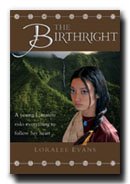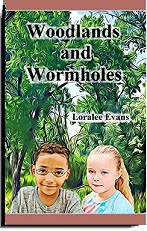I love The Hobbit by J.R.R. Tolkien. I have since I was little. I also love his trilogy, The Lord of the Rings. I adored and drank in Peter Jackson's rendering of The Lord of the Rings to the big screen, and as I mentioned before on this blog, I looked forward to seeing The Hobbit translated onto the movie screen. The following is my feeling on The Hobbit movies, now that the third movie is complete, and I've had a few weeks to think about my impression of the three movies. Of course, I understand that the extended edition of the third movie is not out yet, and I am curious as to what it will have.
My essay on The Hobbit Movies:
...
When I first heard of her, I admit
I was very wary of Tauriel’s inclusion in The Hobbit movies. She isn’t a canon character, first and
foremost, and what her inclusion meant, I didn’t know, which made me very
nervous. Additionally, her character
came across as a little too perfect, and too constructed. She’s only around 600, very young for an elf,
and roughly the equivalent of about 20 in our years, yet she was the captain of
the guard. And that didn’t seem
realistic, or natural.
However, truth be known, had she
simply been there as a balance to the male-heavy story, she wouldn’t have hurt
anything. In fact, Tauriel could have
been a good non-canon female character; a strong, brave character to give
females, including myself, someone to look up to, and root for.
Instead, despite her potential, she
immediately became defined by males around her by
becoming a romantic interest in a very rushed cross-species relationship.
(Elves and humans are
the first and second born of Ilúvatar;
together they are able to produce fully viable offspring, and thus, are clearly the same species, or at least closely related. Dwarves were fashioned by Aulë, and Tolkien never once endorsed the idea that dwarves and elves could be sexually compatible.) Additionally,
it began with a very disrespectful comment from the dwarf half of the
relationship when he asked her to look down his pants. Oddly, this seemed to be entirely negated
by a short conversation about a rock Kili’s mom gave him, and how pretty the
stars were. With this, impressionable
girls who could have learned a lot of powerful, positive ideas from Tauriel, instead
get the false, and dangerous impressions that one- romance doesn't have to take
time as long as you simply find the other person attractive, and two- if a man
says suggestive, crude things to you, it must mean he really likes you. (It wasn’t a terribly helpful message for
boys, either.)
In reality, real love always takes
time, and it is always accompanied by
regard and respect. Without the time to truly get to know who someone
really is, and without respect, it isn’t real.
Ever. Certainly one can be
attracted immediately to someone he or she doesn't know, and certainly a person
can feel compassion for someone one doesn't know, but the ability to know
someone soul deep enough to feel honest, real romantic love for that person
takes time and is always accompanied by respect. The idea that real love
can be rushed was a very negative and destructive idea to give girls, along
with the idea that all a woman is good for, is to be someone's romantic
interest, since Tauriel becomes so immediately with her introduction into the
story and is defined that way all through the story.
Additionally, the dwarf on elf
romance was not plausible or natural any more than a human on gorilla romance
would be. Different species as far apart as dwarves and elves simply would not be attracted to each other
in real life, and the forced relationship between dwarf and elf made it obvious
that those events were being choreographed by a force external to the
characters rather than it being something that would have naturally occurred if
the characters were real people.
When one part of a story shows
itself to be forced, it creates a cascade effect, and makes the entire story implausible. If, for example, the way Tauriel interacts with her environment and with others shows itself to be a construct of the movie director’s choices rather
than being something the characters would do on their own if they were real
people, then that in turn, means that Bilbo and Thorin, Galadriel and Beorn,
Gandalf and Legolas, and everything and everyone else in this universe is false
and forced as well, no matter how well they act in their parts. (And there was some great acting in the Hobbit movies.)
All fiction is, of course,
fiction. It isn’t real. But the storymakers of fiction have the
obligation to create and sustain the illusion of reality. If they are successful in doing that, then
their audience is able to suspend its disbelief. When they create relationships and situations
that are not natural and organic, as with the situation with Tauriel and Kili, the
illusion of reality is destroyed.
Tauriel could easily have been a
great addition to the movies, giving girls a strong heroine to look up to, and emulate
even though she isn’t canon. She could
have been a character who added to and complemented the story, helping from her position
as a supporting character, to move the story of Bilbo along. But that did not happen.

















No comments:
Post a Comment